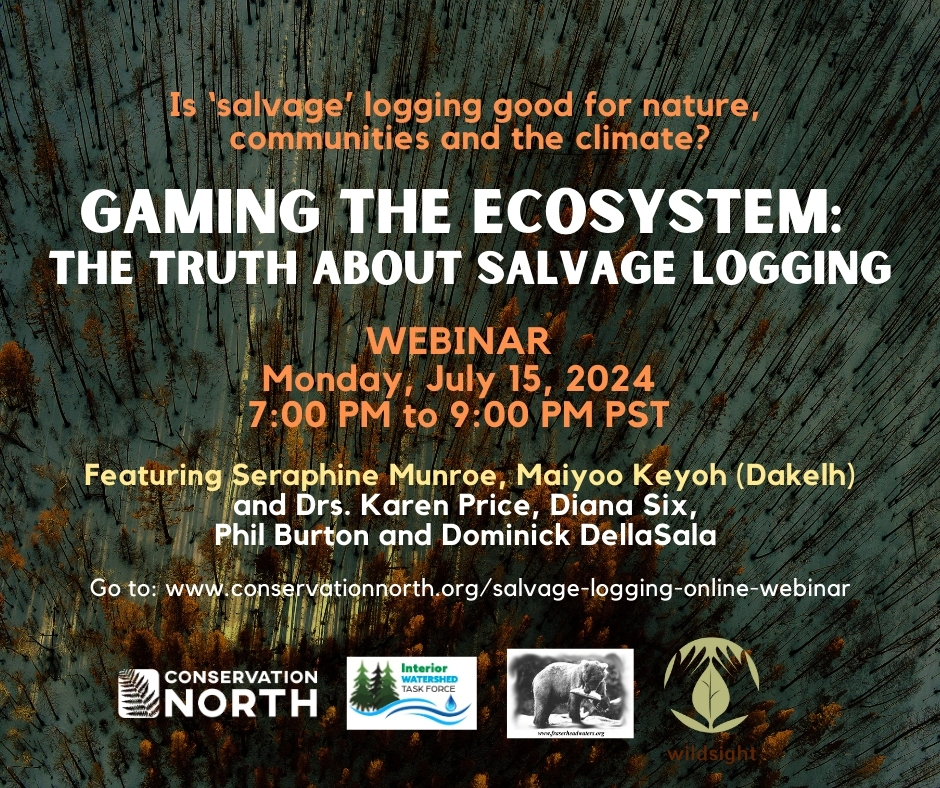Is salvage logging good for nature, communities and the climate? Find out with experts from BC and the US.
Join us on Monday, July 15th at 7:00 PM PST
REGISTER HERE: https://zoom.us/webinar/register/WN_NU27SyBdTveh8lmMZFKCww#/registration
Speakers:
Seraphine Munroe (Maiyoo Keyoh Society) takes great pride as a member of the Dakelh and Sto:lo First Nations and serves as a strategic advisor for Dakelh Reconciliation initiatives. In recent years her main focus has been negotiating title and rights with the province of BC given the pressing reality that the tangible impacts of climate change outpace the adaptability of colonial systems to address the evolving social conditions resulting from climate change and the cumulative effects of large-scale industrial logging.
Karen Price is an independent ecologist based near Smithers BC on unceded Witsuwit’en Territory. She has worked on old growth and land-use policy for 25 years, aiming to bring science and transparency to decisions. Karen focuses on how to maintain ecological resilience given cumulative effects of management and climate. Peer reviewed publications address old growth species from epiphytic lichens to stream insects and birds, forest structure, ecosystem-based management and the status of BC’s old growth.
Diana Six is a professor of forest entomology and pathology at the University of Montana. She is a fellow of the Royal Entomological Society and a recipient of the E.O. Wilson Award. She has degrees in microbiology, agriculture, and entomology and chemical ecology. Her research is broadly focused on the ecology and evolution of bark beetles, including how bark beetle outbreaks influence forests and may accelerate their adaptation to a changing climate.
Phil Burton is an Emeritus Professor with the Department of Ecosystem Science and Management at the University of Northern British Columbia. His research has focused on vegetation dynamics associated with the disturbance and recovery of BC forests following natural and human disturbances, resulting in publication of more than 100 journal articles and book chapters. He was coauthor of the 2008 Island Press book, “Salvage Logging and its Ecological Consequences”.
Dominick A. DellaSala is Chief Scientist at Wild Heritage, and former President of the Society for Conservation Biology, North America Section. He is an internationally renowned author of >300 peer-reviewed papers and 9 award-winning books on forests, climate change, endangered species, and speaking truth to power. Dominick has appeared in National Geographic, Scientific American, Time Magazine, NY Times, WA Post, NPR and many nature documentaries. He has served on the spotted owl recovery team, USGS National Biodiversity and Climate Assessment team, Oregon governor’s task force on forest carbon, and the White House task force on sustainable forestry.

